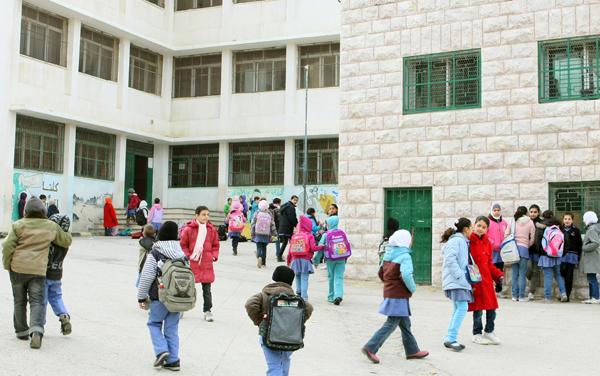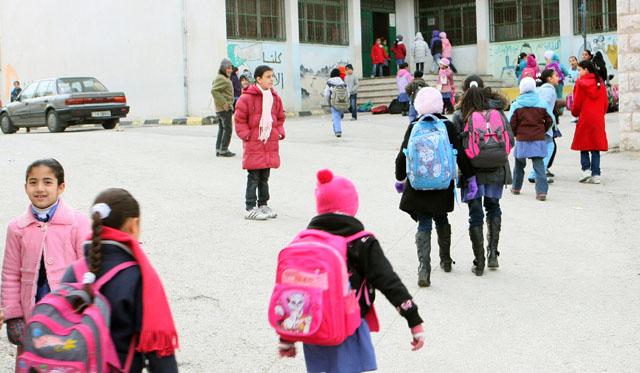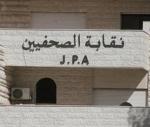You are here
Public school heating still an issue despite efforts by stakeholders
By Laila Azzeh - Dec 29,2016 - Last updated at Dec 29,2016

Students at public schools in cold areas around Jordan have to wear their coats indoors due to the lack of sufficient heating (File photo)
AMMAN — Although warmer public schools are the aim of all stakeholders, the heating mechanism remains a challenge that is hindering efforts to achieve that goal.
Despite the government’s endeavours to provide schools across Jordan with kerosene heaters, such a heating method is met by some complaints from educators, parents and health providers over its safety and feasibility.
In the summer, the Education Ministry handed out an additional 12,000 kerosene heaters in preparation for the cold season.
“In June, we tasked directors of education departments with ensuring that there is a heater in each classroom. They are also required to make sure that they are working ahead of winter,” said Sami Salaytah, the ministry’s secretary general for technical and administrative affairs.
In response to the complaints, he noted that most Jordanian households use kerosene heaters, which, he underlined, are very safe and used in many countries worldwide.
“It is the most affordable heating method and is very safe provided that they are put in secure places, such as the corners. Teachers in class are responsible for taking care of them,” Salaytah told The Jordan Times recently.
However, he noted that some school principals do not abide by the instructions and refuse to turn the heaters on.
“These are individual violations that we address on the spot,” the official said.
While schools are responsible for purchasing the kerosene, especially after Education Minister Mohammad Thneibat prohibited collecting money from students, the Jordan Teachers Association (JTA) says that some schools cannot afford it.
“The heaters are not of good quality, and many are not working. The smoke they emit is harmful and teachers complain to us about this all the time,” said JTA Spokesperson Ahmad Hajaya.
He cited schools in Jerash and Tafileh — located in the coldest regions in Jordan — that suffer each winter due to the lack of an appropriate heating system.
“Having a kerosene heater in class will not have an impact in these schools,” Hajaya said.
Jihad Ayasrah, a resident of Souf in Jerash, said his sons’ school does not turn the heaters on, even though the classrooms are “extremely” cold in winter.
“I am planning to report the school to the Education Ministry,” he said.
On the other hand, Jerash Education Department Director Mahmoud Shehab said the vast majority of the governorate’s schools are provided with kerosene heaters, while some others have central or solar-run heating.
“Each school is required to make sure the heaters are on in each classroom,” he told The Jordan Times.
Last year, His Majesty King Abdullah directed the government to install central heating at public schools across the Kingdom in a several-phase project.
In the first phase of the project, funded by His Majesty, central heating was installed in 50 schools located in “extremely cold areas” based on priority.
The government was tasked with undertaking the implementation of the project’s following phases to cover all public schools.
In parallel with this initiative, King Abdullah directed officials at the Royal Court to study all available options, especially renewable energy utilisation, to provide heating at public schools.
Salaytah cited the several-phase project to replace heaters in classrooms with central heating, a move he said would take some time due to financial reasons.
“This is the end-goal and until we reach it, kerosene heaters are our best option now,” he noted.
According to periodical health tests held last year for 413,646 first, fourth, seventh and 10th graders, a total of 2,049 students suffered from respiratory diseases and 3,672 suffered from enlarged tonsils and sore throats.
“Students who have allergies and asthma might be negatively affected by the kerosene. Teachers should make sure that the classrooms are properly ventilated,” pulmonologist Tawfiq Abdul Hadi Daoud told The Jordan Times.
Related Articles
AMMAN — Public schools will have warm classrooms this winter, with measures under way to install central heating, an official source said We
Raed Sheyyab, who lives in the northern city of Irbid, usually does not send his children to school on cold winter days due to the absence of heating in their classrooms.
His Majesty King Abdullah on Saturday directed the government to install central heating at public schools across the Kingdom in a several-phase project.















